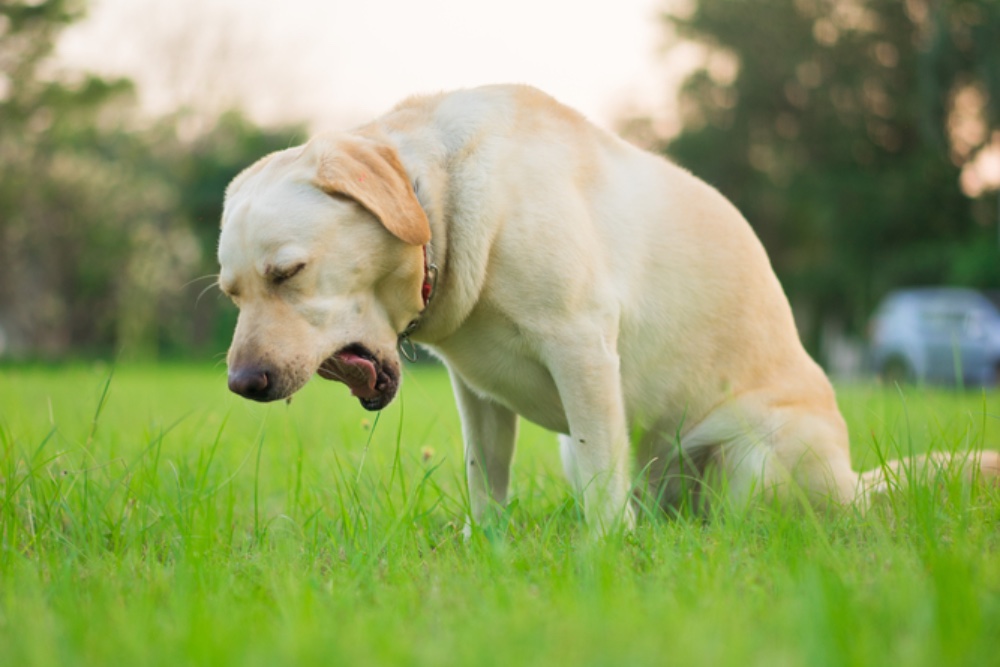As a human, you must consume a lemon regularly; it’s good for your health. However, it’s not a proper choice for your pets, such as dogs. Lemon contains citric acid that can harm your dog.
Apart from that, it also consists of a few toxic elements that disrupt the health of your dog. Later, it leads to a critical condition. People love to have pets and keep plants in their homes. It may not be a good idea every time.
In this blog, you’ll learn whether the lemon tree leaves are toxic for your dogs or not. Try your best to keep your dog away from lemon trees and other types of tree leaves.
Otherwise, the dog may suffer several diseases like diarrhea, depression, low blood pressure, etc.
What is a Lemon Tree?

Lemon Tree is a popular all-season green plant that is found in almost every corner of the world. They grow in well-drained soil and require full sunlight and soggy conditions to grow. These types of plants can grow up to 20 feet tall. However, if you have pets, like cats and dogs, in your house, you should keep them away from it. Lemon trees or their leaves can be toxic for them.
Is Lemon Tree Leave Toxic for Dogs?

All types of Lemon trees contain citric acid that is harmful or toxic for your pet dog. Not only for dogs, but it can be harmful for other animals too. Apart from citric acid, lemon trees or their leaves also consist of essential limonene and linalool. They are completely toxic elements for the dogs. The lemon tree leaves contain a few amounts of phototoxic compounds. It can cause them gastritis and liver infections.
Besides these, they might have a rash on their skin. Later, it leads to skin irritation. Lemons are good for the human health but not for the dogs. If you have a lemon tree in your house, keep your dog safe from it.
How Do Lemon Tree Leaves Affect Your Dog?
1. Diarrhea

One of the biggest symptoms you may notice in your dog if they get affected by the lemon tree leaves, is diarrhea. It’s because the phototoxic compound on the leaves affected the dog. You may notice the color change in their latrine. In this case, you should consult your vet immediately.
2. Lack of Energy

The lemon tree leaves can cause lethargy in your pet dog. In other words, your dog might lose its energy and enthusiasm. It can lead them to stay idle, and they will sleep more than usual. Due to the toxicity of a lemon tree leaf, your dog will feel tired excessively.
3. Skin Rash and Irritation

The major toxicity sign a lemon tree leaf can cause to your dogs is a few skin rashes. Later, the rashes turn into skin irritation. They will feel irritated frequently without any reason. If you check their skins deeply, you will find a few rashes. In addition, it can lead to their fur loss.
4. Vomiting

Apart from diarrhea, the lemon tree leaves can cause gastric problems in your dogs. You might notice your dog is vomiting frequently without any reason. The leaves can cause allergic problems in your dogs. It can also lead to vomiting. To cure them, visit a vet nearby as soon as possible.
5. Low Blood Pressure

The lemon tree leaves can diminish the blood pressure of your dog. If they merely smell the leaves, they can get affected. After that, it lessens their energy levels, and they feel too lazy to commit to any activities. Later, it can cause several other diseases like fainting, depression, and kidney failure in your pet dog.
6. Depression and Weakness

As the lemon tree leaves cause low blood pressure and produce lethargy in your dogs, it can lead to serious issues. It includes weakness; your dog may feel weak most of the time. In addition, it can cause serious depression to them. You may observe the symptoms of unusual behavior, appetite loss, etc., in your dog.
7. Liver Failure and Life Risk

Sometimes, the lemon tree leaves can damage the liver of your dog. At first, it can decrease blood pressure, ultimately leading to kidney failure. The lemon tree leaves are also life-threatening to dogs. So keep your dogs away from any kind of lemon trees.
Diagnosis and Treatment

If you see any of the above symptoms caused by lemon tree leaves, don’t hesitate to consult your vet immediately. Sometimes, you may find that the color of your dog’s latrine changes because of diarrhea. Aside from that, you may also find them weak or in depression. In this case, the vet will recommend you test your dog’s blood if it contains some toxins related to the lemon tree. The veterinarian will either give your dog any vaccine or medicine.
They might also require a few neurological tests. If your dog has some disease from the lemon tree leaves, provide them with a balanced meal for a certain period. Give them plain rice with cooked chicken or scrambled eggs. It will help them in speedy recovery.
In Summary
Lemons are good for human health but may not be an appropriate choice for your pet. A lemon tree can cause diarrhea and gastric problems in your dogs. If they touch the lemon leaves, they might get some rashes on their skin.
Apart from that, lemon tree leaves can decrease the energy level and blood pressure of your dog. So, try to keep your dogs away from the lemon trees. In this blog, you’ve acknowledged the fact of whether the lemon tree leaves are toxic for your dogs or not.
If you still have any queries, let us know in the comments.

